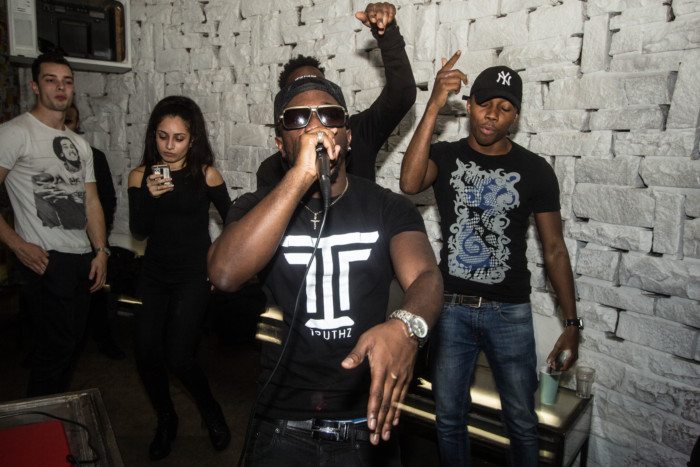Views from the Koan: an interview with Truthz
Honest, bipolar, deep. These are the three words Jeremiah Amoako-Gyapong, better known to the world by his alias Truthz, uses to describe his music, a depth that sets the precedent for both his sound and demeanour.
Hailing from Enfield in North London, Jeremiah now juggles a second-year Law and Sociology degree with a burgeoning music career and his own society: FlowSoc. He raps, sings and sometimes produces, and having reached a cumulative 65,000 ‘plays’ on Soundcloud, as well as being featured on Link Up TV’s YouTube channel (an online platform that’s helped launch the careers of many big name grime artists), Truthz’s chameleonic musical abilities are clearly getting him noticed. But where does he get his inspiration from?
“Literally the mood I’m in, the situations I’m going through or the things I experience. That’s why I use the word versatile, because my mood will always affect what I write. That’s not only in the lyrical content, but genre and style as well.”
“No one wants to lose….I wouldn’t let myself lose”
When pressed to describe his sound, Truthz reels off a mosaic of different influences: “Hiphop, grime, slow R&B, afrobeat, sometimes more pop and trap”. It’s an eclecticism that led him to name his latest mixtape Bipolar which he explains “has lots of very different ideas all over the place. I kinda prefer it that way”.
Versatility is a trait he admires in others as well, being a self-confessed Drake fanboy (“He can do everything”), but also of UK crossover artists who first cut their teeth with grime, naming Chip and Wretch 32. It’s the cornerstone of his advice to anyone trying to make it in an increasingly saturated music industry, and he clearly has a lawyer’s logic and mindset: “Be analytical. Analyse the artists who are doing well, not only the people whose music you appreciate but also the people who are getting listened to – expand your learning from them. However, at the same time you’ve got to stay original. Most people who do manage to break through nowadays have distinct elements to them, so originality is essential.”
Truthz first tried his hand at spitting back in the playground, in “countless” battles in which he and his mates would verbally joust to be crowned winner. “That’s where it all originated from I guess. No one wants to lose. I wouldn’t let myself lose, I can’t lie. I started to think: ‘I need to write something and I need to always be ready’. I just took it too far basically,” he laughs. “When everyone stopped I just kept on writing and turned it into music and songs.”
Grime as a genre does have a reputation for being centred around battles, beef and bravado. Truthz however sees this as a positive: “In some elements it’s very productive. It definitely pushes artists and generates more views and interest. Look at Chip and Yungen, they saw their views go through to the millions when they started beefing. It does depend who wins though, it’s not productive for the loser.”
Another issue hot on everyone’s lips with grime’s recent resurgence into the mainstream is the danger of it becoming commercialised and its original sound diluted. “I feel like grime is actually evolving,” Truthz explains, “The sounds and lyrics previously used in grime were good for the time, but now software and instrumentation are evolving so we’re not making music in the same way anymore, it’s bound to grow. People think it’s just about sound as well, but technically it’s about tempo (140bpm). Things like Skepta winning the Mercury prize are huge, especially when you also start seeing support from an artist like Drake. I was on Twitter in my last lecture actually, and right now people are debating whether Drake is really making UK rap universal and whether that’s a good thing. I think we should always expand rather than try to keep it all in the UK.”
“It’s all about consistency and growth…”
When pressed on his constant referral to online views rather than sales, Truthz explains that for a music that still essentially remains a subculture in an increasingly digitised market, views are often a better indication of an artist’s traction. “I used to shout that it’s not really about views, as nowadays people can buy fake views on YouTube, but the reason I do reference them is they’re one of the main quantifiable measures we can all assess, whereas things like sales aren’t as explicit,” he said. “When comparing music that doesn’t regularly chart in the Top 40, views are the best hard figures we can use. That said, it doesn’t mean anything if someone gets a million views on just one track, it’s all about consistency and growth.”
One last question: UK or US music? “UK all day baby – it’s healthy to listen to where you come from.”
Truthz’s new single, featuring Krept and Konan collaborator Abra Cadabra, will be out soon.


Comments